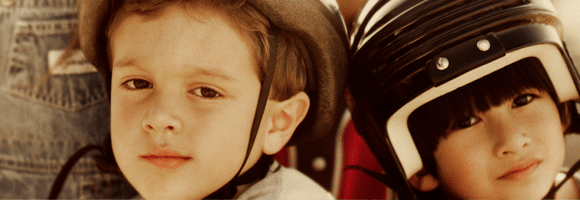28
Oct
2014
Helping Your Child Develop Healthy Friendships
{Originally published in 2011}
There is such a fine line in parenting between guiding and controlling. A parent must constantly be asking themselves, especially as their child ages, if a certain outcome is in the child’s best interest or simply a parental preference.
Some parents, for instance, would prefer to pick their child’s friends for them. It seems, at first glance, to be in the best interest of the child.
Yet, in reality, what is best for the child is for them to learn to choose healthy relationships from the very beginning.
1. Be a friend.
It seems trite, but the best way to have a friend really is to be one. My daughter would come home upset because a particular child would not play with her. For whatever reason she had deemed this child her “best friend” and couldn’t understand why the feeling wasn’t mutual.
At first I was upset for her. No mom wants her child to be hurt.
Simply hurting with her, however, did nothing to solve the problem. So I chose a different tactic. “Who did you see on the playground with no one to play with today?” We would go through all the kids she could think of and, invariably, there was one who played alone that day. “Tomorrow,” I would say, “be that child’s friend.” Her attitude had been one of “who wants to be my friend?” I helped her gain the perspective of “whose friend can I be today?”
2. Learn to walk away from unhealthy friendships.
This is such an important lesson to instill early in our boys and girls.
I’ll never forget picking my nephew up from daycare one day and asking him how his day went. His response? “It was okay except my friend kept hitting me.” Now, he was a small child and kids that age sometimes hit. But I did explain to him that friends do not hurt friends.
For my daughter, the issue was words. Her “friends” would ignore her or say mean things. It is vital that we teach our children what a healthy relationship looks like.
When it comes to finances, Dave Ramsey talks about “walk away power. “When making large purchases, such as a car, if the seller will not come down to the price you know you can afford, you must be willing to walk away. When it comes to unhealthy relationships, instill “walk away power” in your child.
3. Quality over quantity.
We live in a world obsessed with popularity. If we can’t have the best or most of something, we want to be friends with the one that does.
We must teach our children to seek those deeper, more meaningful relationships. They should be kind to everyone, yet be selective about who they really share their hearts with.
It’s tough navigating the road of relationships and there will be numerous bumps along the way. There are, however, some things we can instill in them early to help them make better relationship choices.
